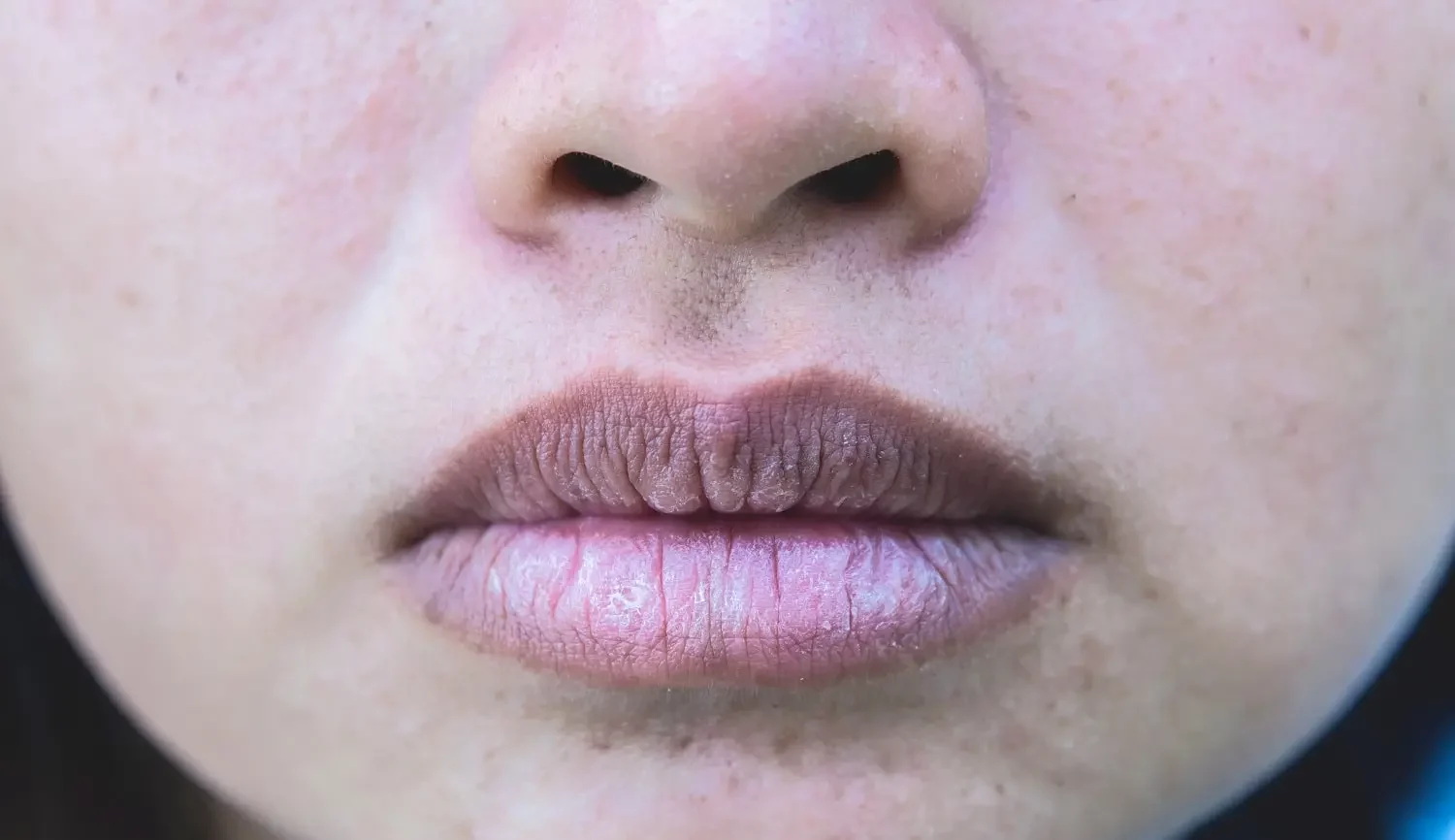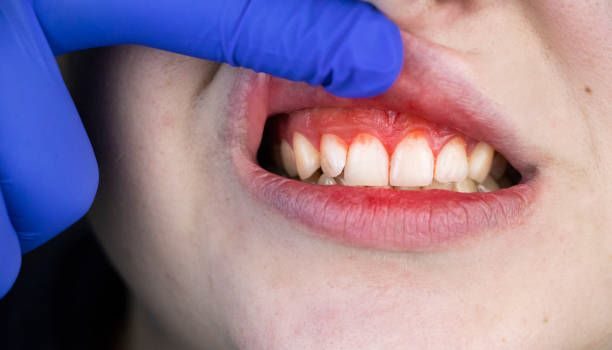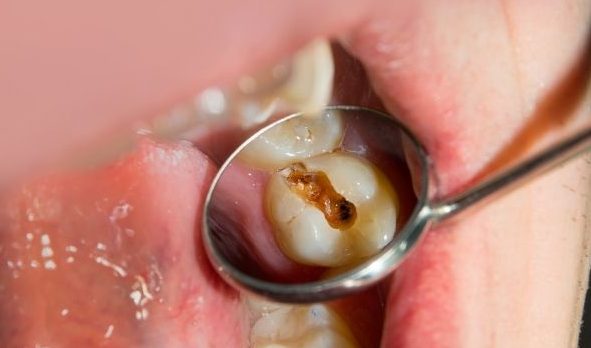Last Updated on: 4th December 2024, 05:22 pm
Menopause and oral health have a lot of connections. It is a stage in the life of every woman that manifests between the ages of 45 and 50. During this period, many physical changes are experienced due to the decrease in the hormone production of estrogen and progesterone. The symptoms are the well-known hot flashes, headaches, and irritability.
According to the World Health Organization, it is estimated that by 2030, there will be more than one billion women over 50 years of age. This increase in life expectancy entails a parallel increase in the incidence of diseases associated with this stage of life, some of which are closely related to oral health.
What is the connection between menopause and oral health?

Generally, many women are unaware of the oral problems associated with menopause because this stage has other physical and psychological implications that seem more relevant. However, they are not less important because they are less well known. We detail below the most frequent effects caused by menopause in the mouth, especially in the teeth and gums.
Xerostomia

Hormonal changes during menopause cause the salivary glands to secrete less saliva. In addition, the habitual consumption of certain drugs at this stage of life can increase the risk of suffering from the so-called dry mouth syndrome or xerostomia. Because saliva works as a protector and regulator of oral bacteria in the mouth, its decrease can produce consequences such as a greater probability of developing dental caries. In addition, it generates discomforts such as difficulty in swallowing, tasting food, or even speaking; a pasty mouth; dry throat; chapped lips; rough tongue; and finally, bad breath.
Periodontal disease and bone loss

Osteoporosis problems are present during menopause, leading to a lack of bone density that also affects the oral cavity. Several studies link osteoporosis with periodontal disease. This can affect the maxillary bones, thus causing periodontal disease to appear and become more pronounced. There is a possible loss of teeth in that they lose their supporting tissue. In addition, this loss of bone density can also affect and cause problems in the temporomandibular joint.
Burning mouth syndrome
This is one of the most common postmenopausal problems. It is characterized by an intense burning and a sensation of burning, tingling, or numbness, mainly on the tongue while also affecting the gums and lips. This discomfort can cause changes in taste, difficulty eating, and even tooth pain.
Desquamative gingivitis
Another common problem that occurs with menopause consists of the loss or separation of the outer layers of the gums, leaving the root of the tooth exposed and, therefore the nerve endings. As a consequence, the gingival tissue appears red, painful, and bleeding. This is a very annoying and painful situation; many times, the gum is so fragile that it simply comes off due to friction. It can also cause sensitivity to food or drinks that are too hot or cold. In addition, desquamative gingivitis is unsightly since by leaving the root of the tooth exposed, elongated teeth are apparent.
Thinning of the buccal mucosa
As a consequence of the reduction in hormone production, the mucous membranes of the mouth, like those of the entire body, become more vulnerable, fragile, and weakened. For this reason, it is necessary to take extreme hygiene measures and eliminate pernicious habits such as tobacco and alcohol since the user is more likely to suffer complications.
Root caries
This condition occurs as a consequence of desquamative gingivitis since it leaves the root of the tooth exposed to external agents; food remains deposited in the area generating bacteria. Second, a dry mouth creates the optimal environment for cavities to develop. Low salivary secretion is harmful since its production hydrates the mouth and eliminates bacteria so it does not accumulate.
Tooth decay

As we, our teeth lose their enamel and deteriorate. The brightness and original white color are lost. In fact, they become more opaque and yellow.
Menopause favors the appearance of cavities, so it is not just an aesthetic problem.
Recommendations to take care of oral health during menopause
Since menopause is an inevitable stage in every woman’s life, as a woman, you will likely experience the effects associated with this phase. However, we can reduce the consequences with healthy dental care routines.
-
Proper oral hygiene
Good daily hygiene includes brushing after each meal, at least three times a day. Use a soft bristle brush and preferably toothpaste for sensitive teeth, as it will not damage the gums or tooth enamel. For a complete cleaning, brushing can be complemented with the use of a dental rinse and dental floss. You can also ask your dentist for the best toothpaste for menopause.
-
Visit the dentist regularly
Make at least one annual visit to the dentist for a check-up and to assess the state of your oral health so that they can give you tips on how to treat hormonal gingivitis. Professional oral cleaning is recommended once or twice a year or as needed.
-
Eat a balanced diet
Eat plenty of fruits, vegetables, and foods rich in calcium and vitamins A, C, and E as they strengthen bones, the skin, and mucous membranes. Drink plenty of water in cases of dry mouth and use moisturizing sprays or mouthwashes as needed.
-
Avoid tobacco and alcoholic beverages
Avoid tobacco and alcohol, especially in cases of dry mouth or burning mouth syndrome.
As mentioned, these recommendations correspond to basic health care and habits that, although they can be carried out during menopause, are highly advisable to follow at any stage of life.




Contact us
If you have any questions about irrigating wisdom tooth sockets or other dental topics, you can contact us at Channel Islands Family Dental as well as our page on Facebook. We look forward to your visit and we will make a timely diagnosis. Our dentists in Oxnard, Santa Paula, Ventura, Newbury Park, and Port Hueneme will be able to guide you toward the best treatment to take care of your health and give you back your best smile.
Bibliography
- Suri V, Suri V. Menopause and oral health. J Midlife Health. 2014 Jul;5(3):115-20. doi 10.4103/0976-7800.141187. PMID: 25316996; PMCID: PMC4195183. (Accessed 20 2022). Available at: https://www.ncbi.nlm.nih.gov/pmc/articles/PMC4195183/
- Yakar, N., Türedi, A., Emingil, G. et al. Oral health and emotional well-being in premenopausal and postmenopausal women: a cross-sectional cohort study. BMC Women’s Health 21, 338 (2021). https://doi.org/10.1186/s12905-021-01480-5. (Accessed 20, 2022). Available at: https://bmcwomenshealth.biomedcentral.com/articles/10.1186/s12905-021-01480-5#citeas
- Dutt P, Chaudhary S, Kumar P. Oral health and menopause: a comprehensive review on current knowledge and associated dental management. Ann Med Health Sci Res. 2013 Jul;3(3):320-3. doi 10.4103/2141-9248.117926. PMID: 24116306; PMCID: PMC3793432. (Accessed 20, 2022). Available at: https://www.ncbi.nlm.nih.gov/pmc/articles/PMC3793432/#:~:text=The%20teeth%20and%20gums%20are,bacteria%20within%20the%20oral%20environment.
- Cherney K. All the Ways Menopause Affects Your Oral Health. Healthline (internet). Published on: Jun 30, 2022, (accessed 20, 2022 ago). Available at: https://www.healthline.com/health/menopause/menopause-and-sensitive-teeth



